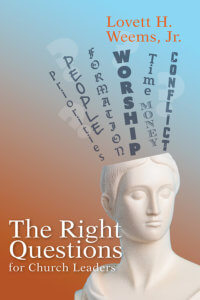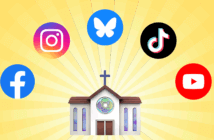Effective leaders recognize the power of asking questions, a skill often lost over time but crucial for building trust and honoring others’ wisdom. Lovett Weems shares that questioning fosters relationships, deepens understanding, and invites collaboration, strengthening leadership rather than diminishing it. Ultimately, curiosity and inquiry drive innovation, allowing leaders to navigate challenges by embracing the insights of those around them.
Andrew Young was mayor of Atlanta, a congressman from Georgia, and U.S. ambassador to the United Nations. But before all those positions, he was a United Church of Christ clergy and civil rights leader who was one of the closest associates of Martin Luther King, Jr. Young tells of joining Dr. King for a meeting with President Lyndon Johnson about the need for a voting rights bill. As the two of them left the White House, King recalled a previous meeting he had with Johnson’s predecessor, John F. Kennedy. “Kennedy asked questions for an hour,” King remarked, “Johnson talks for an hour. That’s the difference between them.”
Fortunately, President Johnson’s leadership included other skills and relationships that resulted in the passage of historic civil rights and voting rights bills. But Dr. King’s incisive observation reflects the truth about most great leaders. The practice of asking questions so easily practiced in our pre-school years gives way to reticence as we grow older. We grow out of practice and assume that others are as reluctant to respond to questions as we are to ask them. Quite the opposite is the case. Few things bring more satisfaction to someone than to be asked something about which they have knowledge or experience. Assuming that others have valuable insights is a way of honoring the other person.
Questions build trust
To be effective, leaders must first bond with their coworkers and constituents. Nothing builds solid relationships more than asking appropriate questions that honor the wisdom others possess. “The greatest compliment was paid to me today,” Henry David Thoreau once said. “Someone asked me what I thought and actually attended to my answer.”
David Brooks thinks of questioning as a moral practice. “When you are asking a good question, you are adopting a posture of humility. You’re confessing that you don’t know, and you want to learn. You’re also honoring a person,” he says. Much of his own use of questions has the effect of beginning or deepening a relationship.
Questions lead to discoveries
When facing adaptive challenges for which the problem or solution or both are unknown, Ronald Heifetz reminds leaders that the crucial step is not to do something, but rather to ask, “What do we need to learn?” It is a good reminder that the power of leaders comes from relationships and constant learning. Questions give an opportunity to let people know that you do not have all the answers and that you need their help to learn what you do not know. Others will respond not by thinking less of you but more. Your willingness to ask for their knowledge builds a stronger bond than would be the case otherwise.
Curiosity and questioning are essential for innovation and creativity. Questions open the mind to new possibilities. They acknowledge the need for insights beyond your own. Questions present new occasions for discoveries every time they are asked. That is why open-ended questions are the gold standard for questioning. Such questions give others maximum opportunity to draw from their experience to contribute to expanding the knowledge needed for next steps.
 Adapted from The Right Questions for Church Leaders, Abingdon Press, 2025. The book is available from the publisher, Amazon, and Cokesbury.
Adapted from The Right Questions for Church Leaders, Abingdon Press, 2025. The book is available from the publisher, Amazon, and Cokesbury.
Related Resources
- Fruitful Leaders Ask Questions by Daniel M. Cash and William H. Griffith
- Cultivating Good Questions by Eileen R. Campbell-Reed
- Fruitful Meetings Are About the Right Questions by Blake Bradford
If you would like to share this article in your newsletter or other publication, please review our reprint guidelines.







